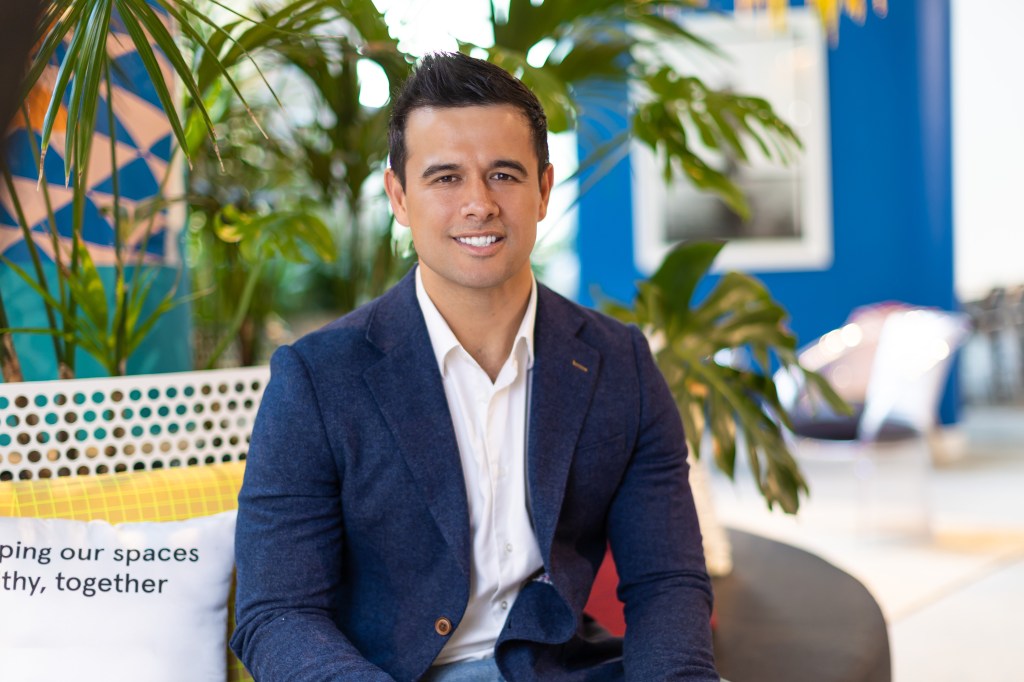Deel’s co-founder and its ANZ country lead say international hiring will take the Australian jobs market by storm in 2023 and beyond.

Alex Bouaziz, 29, co-founded HR software company Deel in 2019 with former MIT robotics student Shuo Wang (she’s now the company’s chief revenue officer).
After banking $4 million in annual recurring revenue in 2021, that figure is looking more like $300 million these days, Bouaziz, who made Forbes 30 Under 30 in 2021, claims. The business formally announced its Q2 2022 funding round at the beginning of 2023, at a valuation of US$12 billion.
Deel began by building payroll and HR tools for companies to hire globally, but really took off when the business opted to build out the infrastructure for each country to hire its customers’ foreign employees in-house.
“If you’re considering hiring one of two engineers with equal talent, why wouldn’t you hire the less expensive one?”
– Shannon Karaka, country lead of Deel ANZ
And business is booming in Australia, with the company bringing on clients like Finder, Immutable and Siteminder. But as layoffs take the global tech industry by storm and recession fears grow, the local jobs landscape is changing, Bouaziz and Deel’s country lead of ANZ, Shannon Karaka, say. Though, Australia might just prove itself to be the lucky country in some respects, Karaka says.

“In Australia I don’t see a downsizing happening in the jobs market, more a realignment or right sizing, especially in the technology market,” Karaka says. “There is a redistribution of tech talent talent, rather than a downsizing happening here.”
Karaka points out that the Australian Minister for Industry and Science, Ed Husic, said Australia needed an additional 650,000 tech workers to meet its target of having 1.2 tech-related jobs by 2030. Even though globally, thousands of workers are being laid off, Karaka says there is still considered to be a 15 to 20 per cent labour shortage across the local tech industry.
“For Australians that have been caught up in the downturn, this means they should be able to find new roles relatively quickly,” he says.
A global opportunity
Though Australians might remain largely unaffected by these global layoffs, they do signal a wider trend set to impact Down Under: borderless hiring. In fact, the company’s H2 Global Hiring Report (2022) found Australia was already the APAC country with the most organisations hiring overseas remote workers.
“Many industries in Australia are beginning to explore a global HR strategy—the tech industry has certainly been the leader in this movement, but other industries are fast following,” Karaka says, listing industries like mining, sport, finance, retail, marketing and education.
It’s especially true of global companies, like NFT platform Immutable. Its Head of People Operations, Chantel Madi, says hiring globally has helped the business secure employees from around the world that better represent the business’ global customer base. And for fast-growing companies like Siteminder. Its VP of People says hiring globally has helped the business confidently scale when needed.
“The reality is that in any economic environment, the best companies optimise for the long term, and that means accessing top talent while deploying capital efficiently,” Karaka says.
“If you’re considering hiring one of two engineers with equal talent, why wouldn’t you hire the less expensive one?”
On this, Karaka points to the not-so-secret secret that hiring has, for some years, been concentrated in places like Silicon Valley, New York, London, Sydney and Melbourne and other expensive region, leading to huge salary hikes and bloated balance sheets. It has become, Karaka says, unsustainable.
“There’s obviously incredible talent in all corners of the world. There’s been huge demand for engineering talent in Brazil and India for example.”
Top tips for retaining talent
Given the size of the labour market in Australia (spoiler alert: with unemployment low and population growth also low, it’s tight), Karaka says businesses will need to offer remote work and flexibility to retain top talent.
“Remote working presents a real opportunity to employers facing a chronic talent shortage,” he says. “It’s also a key way to attract top talent and helps to keep good people in the business.”
Deel’s always been a remote-first company, Karaka says. It’s a fully-distributed workforce, with a team of 2100 working across 80+ countries.
And this trend could reach extremes, Aaron McEwan, VP of research and advisory at Gartner, tells Forbes Australia. Sought after workers can “literally work anywhere”, says McEwan – even a cruise ship could become a permanent or part-time workplace.

But the firm’s senior director of advisory, Neha Kumar, says there needs to be infrastructure in place to support these offerings to increase the employee’s connection to the company. Karaka agrees.
“Managing remote employees does present challenges, and building a great distributed workforce culture isn’t easy,” Karaka says.
“Many companies are not ready, and likely never will be in a lot of cases, to embrace fully remote and distributed work. It’s not for everyone – not every company or every person. It’s actually quite difficult to do successfully because you must be so intentional with the connections, communication, and leadership to effectively manage at scale remotely.”
As for Deel, Bouaziz says the business is positioned well, despite the rocky market.
“We’ve got over $550 million+ dollars in the bank,” he says. “We’re EBITDA positive since September – we’re in a pretty good position and we’re going to do our best to keep on growing and really hit our goals this year.
“We’re seeing a lot of companies looking to consolidate the HR stack, which is really what we want to help with,” he says.
“More and more companies are thinking that international hiring is going to be a great way for them to start their team this year.
“I’m pretty positive on the outlook, but at the same time very realistic that this year is very much an unknown when it comes to what is actually going to happen but, you know, people told me the same when COVID happened, right?”



